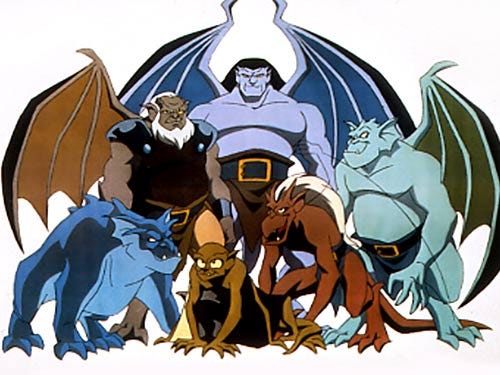
Real Gargoyles have hollow necks that are attached to the building's gutter system. The word gargoyle originates from gorge, which is a French word for throat. They were created to satisfy two needs - protection from water and protection from demons and evil supernatural beings. We have to wonder if Karen would be against placing Gargoyles if she knew their history. Peretz once wrote that the singing voice is on the borderline between spirit and matter, and London and Berger's music brings Peretz's world of earthy mysticism to life.Frank the Christmas Gargoyle Frank the Christmas Gargoyle Frank the Christmas Gargoyle Frank the Christmas Gargoyle Frank the Christmas Gargoyle Frank the Christmas Gargoyle Frank the Christmas Gargoyle Frank the Christmas Gargoyle Frank the Christmas Gargoyle Frank the Christmas Gargoyle Frank the Christmas Gargoyle Frank the Christmas Gargoyle Frank the Christmas Gargoyle Frank the Christmas Gargoyle Frank the Christmas Gargoyle Frank the Christmas Gargoyle Frank the Christmas Gargoyle Frank the Christmas Gargoyle Frank the Christmas Gargoyle Frank the Christmas Gargoyle Frank the Christmas Gargoyle Frank the Christmas Gargoyle Frank the Christmas Gargoyle Frank the Christmas Gargoyle Frank the Christmas Gargoyle Frank the Christmas Gargoyle Frank the Christmas Gargoyle Frank the Christmas Gargoyle Frank the Christmas Gargoyle Frank the Christmas Gargoyle Frank the Christmas Gargoyle Frank the Christmas Gargoyle Frank the Christmas Gargoyle Frank the Christmas Gargoyle Frank the Christmas Gargoyle Frank the Christmas Gargoyle Frank the Christmas Gargoyle Frank the Christmas Gargoyle Frank the Christmas Gargoyle Frank the Christmas Gargoyle Frank the Christmas Gargoyle Frank the Christmas Gargoyle Frank the Christmas Gargoyle Frank the Christmas Gargoyle Most of the songs can be enjoyed on their own, but be prepared to sit down with the liner notes if you want to really follow the story. The album closes with indie rock band They Might Be Giants performing "A Tavern in Pinsk," a song about a bar where the dead gather ("The Talmud doesn't have a clue/If they're allowed to have a few/but Nu! It takes the sting off dying"). My favorite song was the clever "G-d's Reply to Job," where Job gets put in his place by a deep-voiced God, backed by girl-group-style vocals: Other highlights are the smoky torch song addressed to a gargoyle in "Forever Yours," the Broadway-esque duet "It Doesn't Matter," and the mischievous "Tale of the Drowned Klezmorim," about a group of free-living klezmorim heading home after playing at a gentile wedding ("Though they strayed off of their path at the end of the night/They had already strayed at night's beginning"). Glen Berger's lyrics dramatize philosophical themes in the debate between a religious man and an apikoros socialist in "Madness," which slips in a fuzz guitar between cantorial vocals, and treats the Zohar's creation story as operatic tragedy in "Ten Faces of G-d," identifying the broken glass at a wedding with the divine broken vessels. The album opens with "The Bottom of a Well," an inordinately catchy song about death by drowning. The main storyline concerns the thwarted love of Nosn (sung in a cameo by the sweet-voiced Lorin Sklamberg) and his true love Sheyndele, who drowns herself in a well to avoid marrying Itzhak, "the lecher who bought her for kopeks." The badkhn (wedding jester) attempts to reunite the doomed lovers by resurrecting Sheyndele for a ghostly wedding but once the border between the dead and the living is broken, all hell breaks loose, so to speak. London blends eclectic jazz, rock, klezmer, and Broadway musical influences to portray a world inhabited by seductive gargoyles, mad Kabalists, phantom singers, and haunted marketplaces. Peretz's macabre play of the same name, written a century ago, which drew on Yiddish folklore. London, Sklamberg, Schwimmer / The Zmiros Project, 2002įrank London is also in the following bands listed on the KlezmerShack:įrank London's experimental klezmer opera A Night in the Old Marketplace is a brilliant musical adaptation of Y.


Interview with Tzvi Gluckin, "The Ingathering":

Note that the latest stuff may not yet be indexed.


 0 kommentar(er)
0 kommentar(er)
